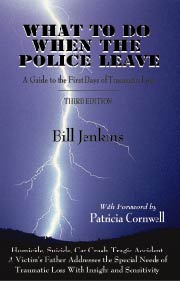Dear North Carolina House/Senate,
We are the National Organization of Victims of Juvenile Murderers. We represent nearly 400 victims around the country who have lost loved ones to juvenile killers. We are emailing to express our strong opposition to House Bill 424, which is currently in the Committee on Families, Children, and Aging Policy.
HB 424 would prohibit life without parole (LWOP) for juvenile offenders and mandate parole eligibility after 15-25 years. The bill greatly devalues and disregards victims. Listed below are some facts lawmakers must be aware of when voting on this bill.
1. The Supreme Court has never ruled that juvenile LWOP is unconstitutional. In Graham v. Florida, SCOTUS ruled that juveniles could not receive LWOP for non-homicide crimes. In Miller v. Alabama, SCOTUS banned mandatory LWOP for juvenile homicide offenders. Pursuant to Miller, a judge can impose an LWOP sentence on a juvenile murderer so long as they consider youth and mitigating factors beforehand. In Jones v. Mississippi, SCOTUS will determine if a sentencing authority must make an explicit finding of permanent incorrigibility before sentencing a juvenile killer to LWOP. Even though the Supreme Court has restricted the use of LWOP against juvenile murderers it has never banned juvenile LWOP.
2. Some juvenile murderers are culpable enough for LWOP. HB 424 advocates will attempt to minimize crimes committed by juveniles to advance their agenda. They do so by calling the crimes “mistakes” and “errors in judgment” and referring to the offenders as “children.” (Most juveniles who get LWOP were 16 or 17 when they committed their crimes. They were not “children”). But the truth is that some juveniles commit heinous crimes with a complete understanding of the results and with the intention to bring about those results. One example is the kidnapping, gang-rape, and murder of 10-year-old Tiffany Long in Burlington. Another example is the kidnapping, robbing, and execution-style murder of UNC-Chapel Hill student body president Eve Carson in Chapel Hill.
HB 424 advocates will point to the typical traits associated with youth–impulsivity, immaturity, recklessness, and failure to appreciate consequences. NOVJM does not deny that these traits are common among youth. But that does not mean they are involved in all juvenile crimes. Laurence Lovette’s murder of Eve Carson is a perfect example. The crime was not impulsive–it was extensively planned ahead of time. Lovette was not under peer pressure. As noted by the North Carolina Court of Appeals in a decision affirming Lovette’s sentence, Lovette led his older co-defendant. Lovette also did not fail to appreciate the consequences of his crimes. He knew that a consequence of kidnapping and robbing Eve was having her tell others about the crimes. So he prevented those consequences by murdering her and eliminating her as a witness. Sentencing decisions should be based on the specific facts of the case and not the general traits associated with youth.
The idea that a 17-year-old does not understand the wrongfulness of terrorizing and murdering an innocent woman over a small amount of money is asinine. LWOP is not a disproportionate sentence for such heinous and terrifying crimes. Allowing evil murderers to live unfettered lives from their early 40s onward, while their victims rot in graves, is unjust.
3. Parole hearings are traumatic for victims. Many HB 424 proponents will insist that giving callous murderers parole hearings doesn’t really matter, as no parole board will vote to release them. This argument completely disregards the horrific trauma victims endure during the parole process, trauma which they will endure whether or not the offender is released. Parole hearings force victims to relive the crimes and suffer nightmares, flashbacks, panic attacks, and other horrors. Inflicting this pain onto innocent victims for the purpose of giving a rapist-murderer a chance at freedom is cruel.
The retroactive nature of HB 424 renders the bill even crueler. Victims would be forced to endure parole hearings they did not expect or prepare for, increasing the traumatic impact.
Conclusion
HB 424 is an attempt to replace common sense compassionate sentencing policies with feel-good yet harmful laws. The negative consequences of HB 424 would be astounding. NOVJM asks that North Carolina lawmakers consider victims and oppose HB 424. Or at least amend it to be less cruel to victims.
Sincerely,
NOVJM











